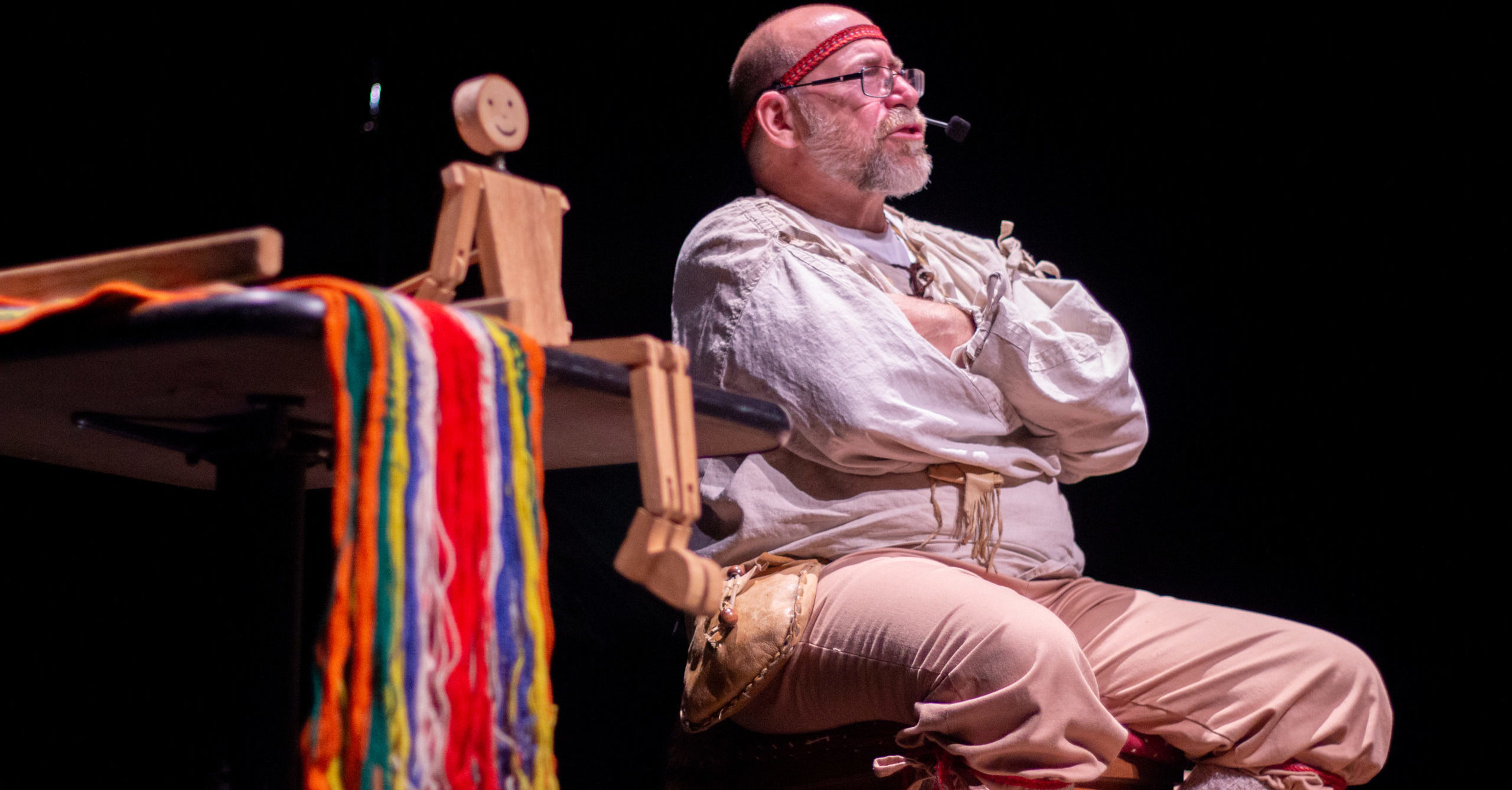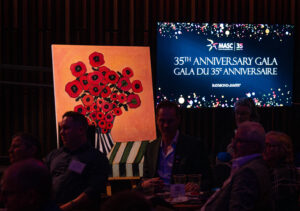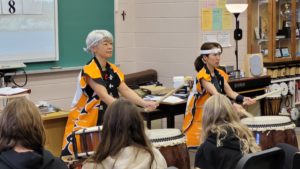Interview: Maniwaki’s Louis Mercier is a traditional franco folk music master
By Jessica Ruano | January 4, 2022

This interview was originally published on Apt613.ca
Louis Mercier is an ambassador of traditional French-Canadian music. His family is from Maniwaki and has passed on their traditions to him throughout his childhood, providing his foundation of square dance, traditional percussion and music, toe dancing, playing the bones, washboards, spoons and the comb. In this interview, Louis talks about our past, how it is alive in the present, and how it will mark our future.
In your video interview for MASC, you mention that it is important for you to pass on to young people the traditions of our past that are increasingly being forgotten. How do you think these traditions might affect the daily lives of the participants in your workshops?
I think my workshops help them understand a little bit more why we Francophones are different from Anglophones. Everyone is different, but we all have a past. The past helps us understand who we are today; our identity. The more you understand what happened in the past, the more you can have fun with this language and culture. At the same time, you learn about other cultures that way. The travellers were French-speaking at the beginning, but then there were English-speakers. The lumberjacks were also mostly French-speaking, but then came the English-speaking lumberjacks. They don’t have the same songs, but the stories in these songs are similar because everyone was dealing with hardships in those days.
In collaboration with MASC, you have produced two videos on demand in English and French. Can you see the differences in the duality of the languages in your performances? And how do Anglo-Canadians perceive Franco-Canadian traditions?
Yes, I see the differences very, very clearly. When I present to French-immersion schools with primarily English speakers, it’s not received negatively, exactly, but since they see me as a “grandpa” figure—they are surprised to have so much fun in French. The English speakers, it’s like after two minutes of performance: I have them. I see the difference. The English speakers are really listening, they’re on board and they’re crazy stiff. But they’re really fun. All classes are fun, but with the English speakers, it seems like at first they hesitate, but because I’m dynamic, they get on board with me and they go on a journey with me. They become very receptive. I have to speak more slowly and it takes more effort, but it’s worth it.

Mercier at a school workshop. Photo provided by MASC.
You make music with bones, washboards, spoons and combs, among other things. What do you like about objects that are both practical and musical?
I really like making music. With percussion, we can make noise and rhythm with anything around us. It’s fun to see that in the past, because they had washboards, they used them to make music because they didn’t have money to buy musical instruments. With spoons, there were no forks before, they would bang the spoons on the edge of the table. There were also combs and handsaws. We would try to make noise or sound with everything around us. I want to show them everything that was used to make sound or music. I mostly use the spoons and I use the bones a little bit, but the others I don’t use very often because I don’t think I’m skilled enough. But for some workshops, I use the washboard quite a bit!
What do you gain from offering your workshops in schools and in the community?
What I gain is having fun with people. It makes me happy when a young person comes up to me after a show. For example, when he picks up a piece of birch bark that I dropped and asks me if he can have it. It means something to him; the fact that I’ve been in his life. It makes him happy and anchors him to the future. It’s having fun and learning a lot. I love it passionately. I’m crazy about it! I like to have fun and I like the sparkling eyes of young people, the questions they have and their dynamism. The young people inspire me a lot and the older people inspire me just as much.
In the end, it’s the audience that inspires me. When I do my shows, I often perform at two different levels. So young people understand one concept and adults understand another. I work a lot to find things that interest the adults as well as the youth. It’s all well and good if it’s interesting to the young people, but if the adults aren’t interested, it’s no fun for the adults who are watching. I try to make it work for everyone. I often have two-tiered and sometimes three-tiered humour.

Many objects can be used to make music. Photo provided by MASC.
Why do you think it is important for our local community to have access to professional artists?
Sometimes we lock ourselves into what we know and do only what we know. We spend time with people we know. We restrict ourselves to a musical style. We feel comforted by familiarity, but it doesn’t open us to the world. By inviting in all kinds of artists, it opens our eyes. I think that’s very important. Having professional artists come into the schools, I think that’s great too and MASC promotes that. It’s a wonderful gift to the community.
Latest News
View All Articles



